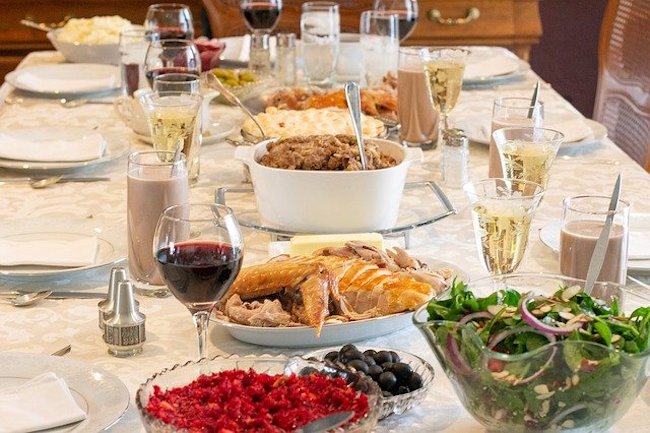Food shortages are starting to lead to rationing… Are you prepared? By Cassie B. for Grocery
As food shortages continue to spread, some areas have resorted to what can only be described as rationing in an attempt to keep their store shelves from appearing on Twitter with #BareShelvesBiden hashtags.
Many stores are now limiting the number of in-demand items people can purchase, with everything from toilet paper to cat food being rationed. Foods such as bread, potatoes, pasta, cream cheese, chicken and produce are all in short supply these days. And now, D.C. Homeland Security and Emergency Management has been asking residents to carry out some self-imposed rationing.
In a Tweet, the agency wrote: “If you’re hitting the grocery store to prepare for winter weather, please just buy what you need and leave some for others!”
It went on to say: “You may have noticed empty shelves in some stores due to national supply chain issues, but there is no need to buy more than you normally would.”
The Tweet was accompanied by a graphic of a woman gingerly removing a single box of an unlabeled food product amid fully stocked shelves and placing it into her near-empty shopping cart.
Of course, the message makes a pretty weak argument and may even encourage the very behavior it aims to curb. After all, if authorities are explicitly stating there is a nationwide supply chain issue, won’t that have the effect of making it increasingly difficult to get the things you need?
This message might have been related to an upcoming winter storm, but it’s not just Washington, D.C. that is facing this problem, and it’s not just for a day or two when bad weather is expected. Shoppers are heading out to supermarkets throughout the nation every day, only to be greeted by empty shelf after empty shelf, forcing them to look elsewhere or go home without coming close to crossing off everything on their list.
It’s getting harder to deny there’s a problem when people across the country are posting photos online of barren stores that look like they’re clearing out their inventory to close down for good. Some stores are getting creative about pretending there isn’t a problem, spacing out food items to create the illusion of fully stocked shelves, while others are just placing posters where the food would be so the shelf doesn’t look quite so sad. No matter which approach the stores take, however, the result is the same: Your family is going to be hungry.
If you haven’t prepped food storage, now is the time
There’s a lesson in here for those who are paying attention: It’s time to start prepping your food storage, if you haven’t done so already. This could well only be the beginning. If you thought ration cards could never fly today, just take a look at what is going on with vaccine passports and you’ll see just how easily governments can control people’s actions. As society becomes increasingly cashless, rationing is only going to get easier for the government.
However, being prepared doesn’t just mean running out to your local store and grabbing whatever is left on the shelves. Now is the time to start growing your own produce, even if it means investing in an urban gardening solution for your apartment balcony. Consider raising livestock, and learn how to make the things you can’t buy right now.
There are lots of great resources online that can help you get started with prepping. Many people start by stocking up on basic foods and pantry staples like rice, beans, pasta, flour, yeast, grains and sugar that can be bought in bulk and stored easily. You’ll need to learn about proper storage, too, but it’s a relatively short time investment that could well end up saving your life one day.




